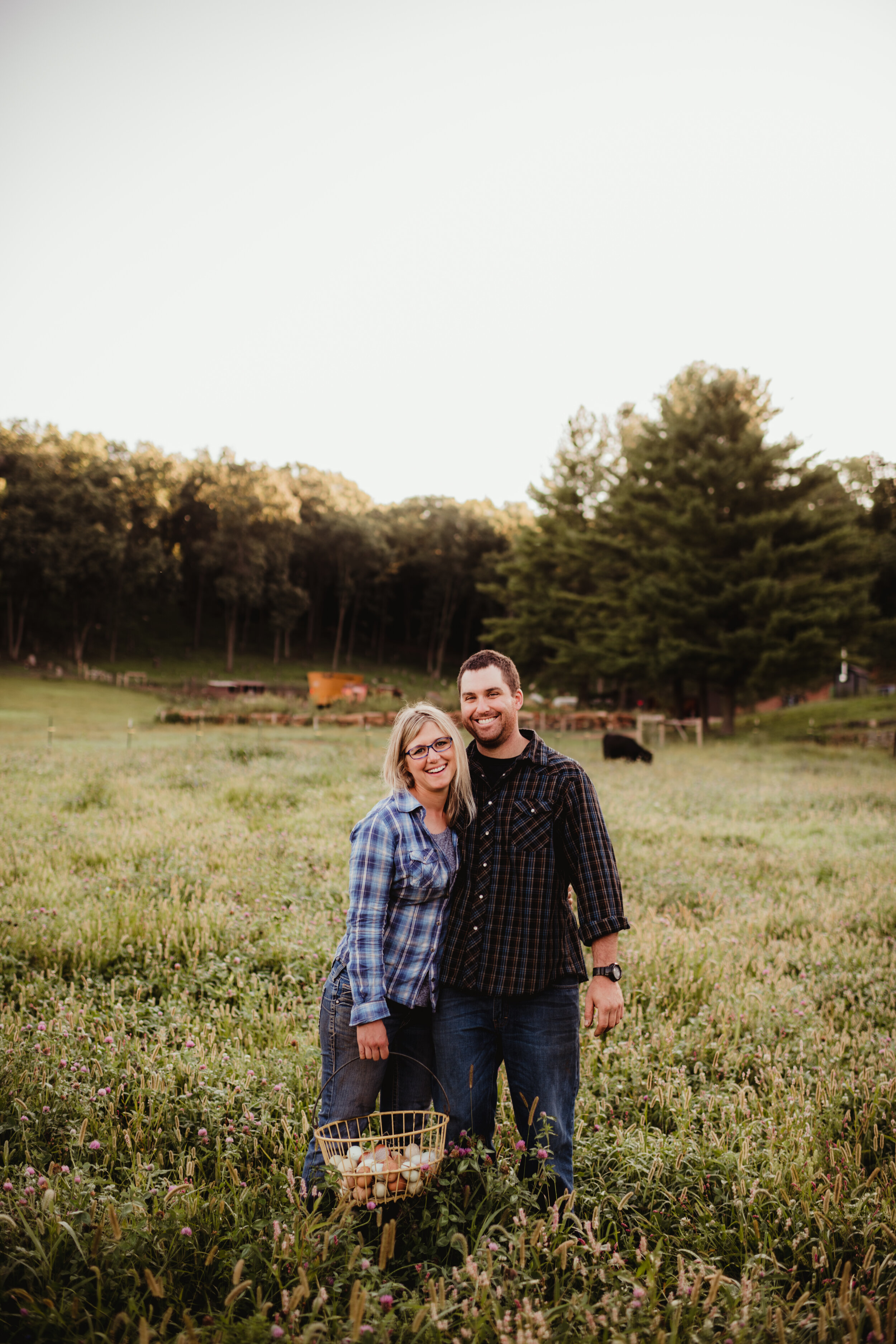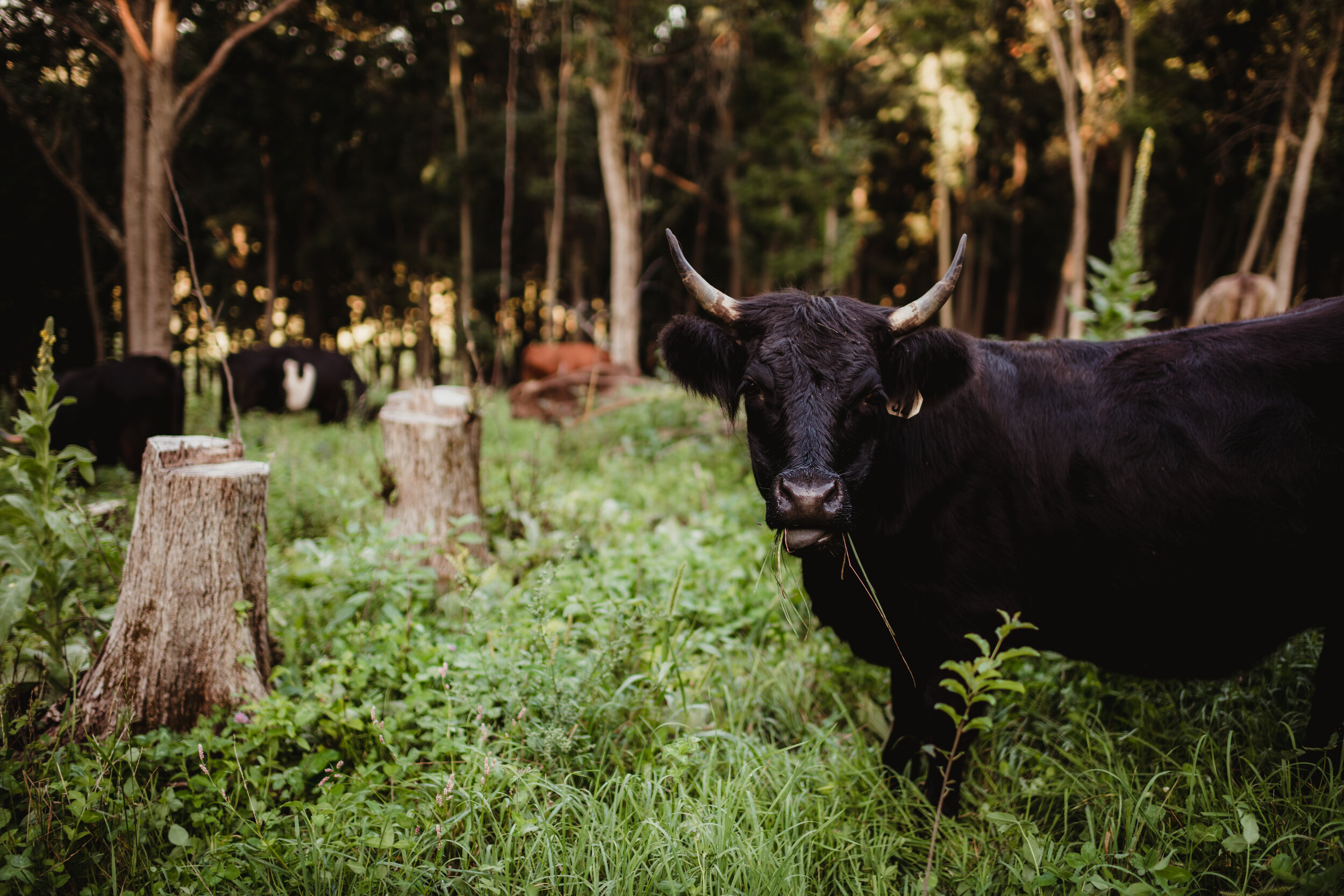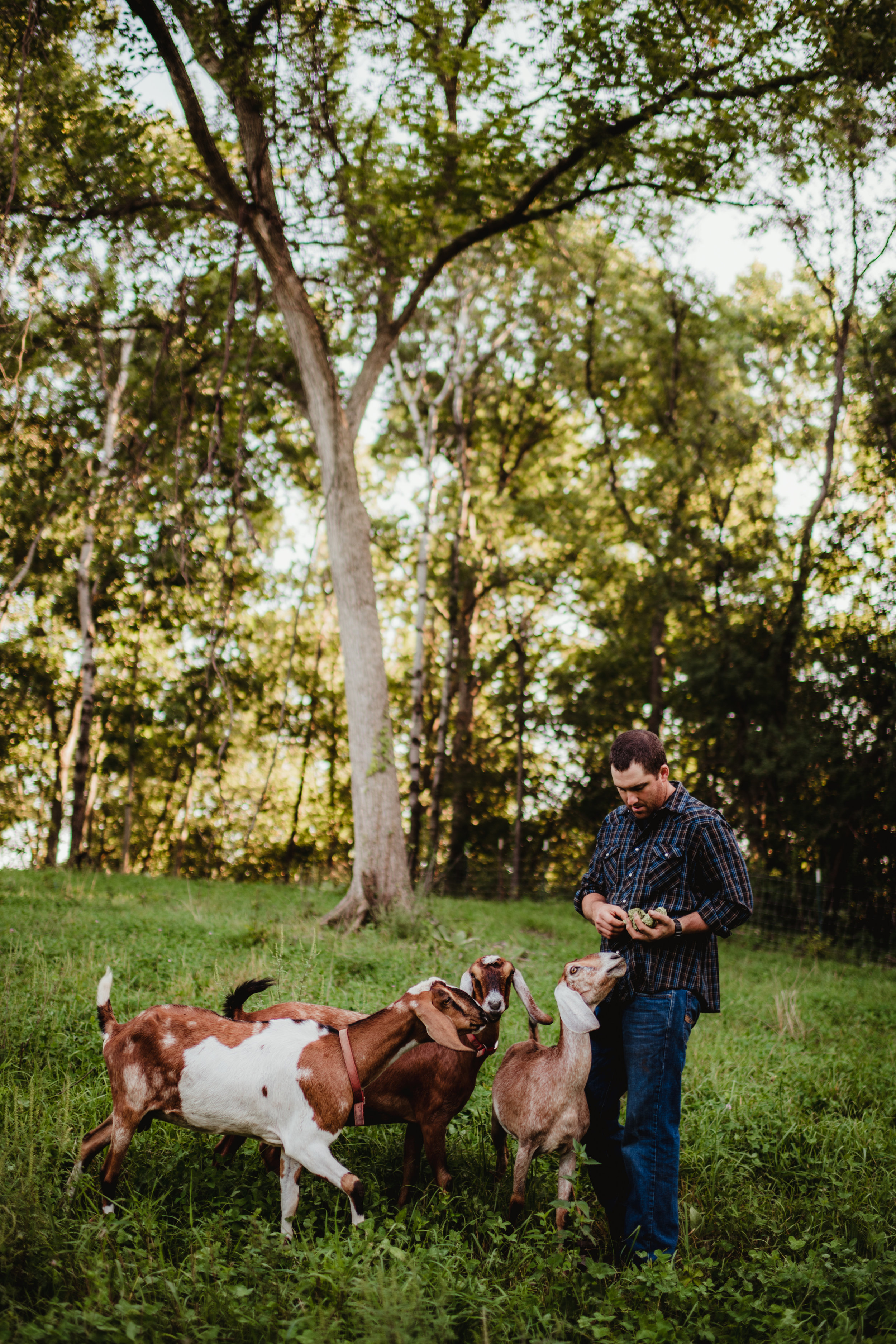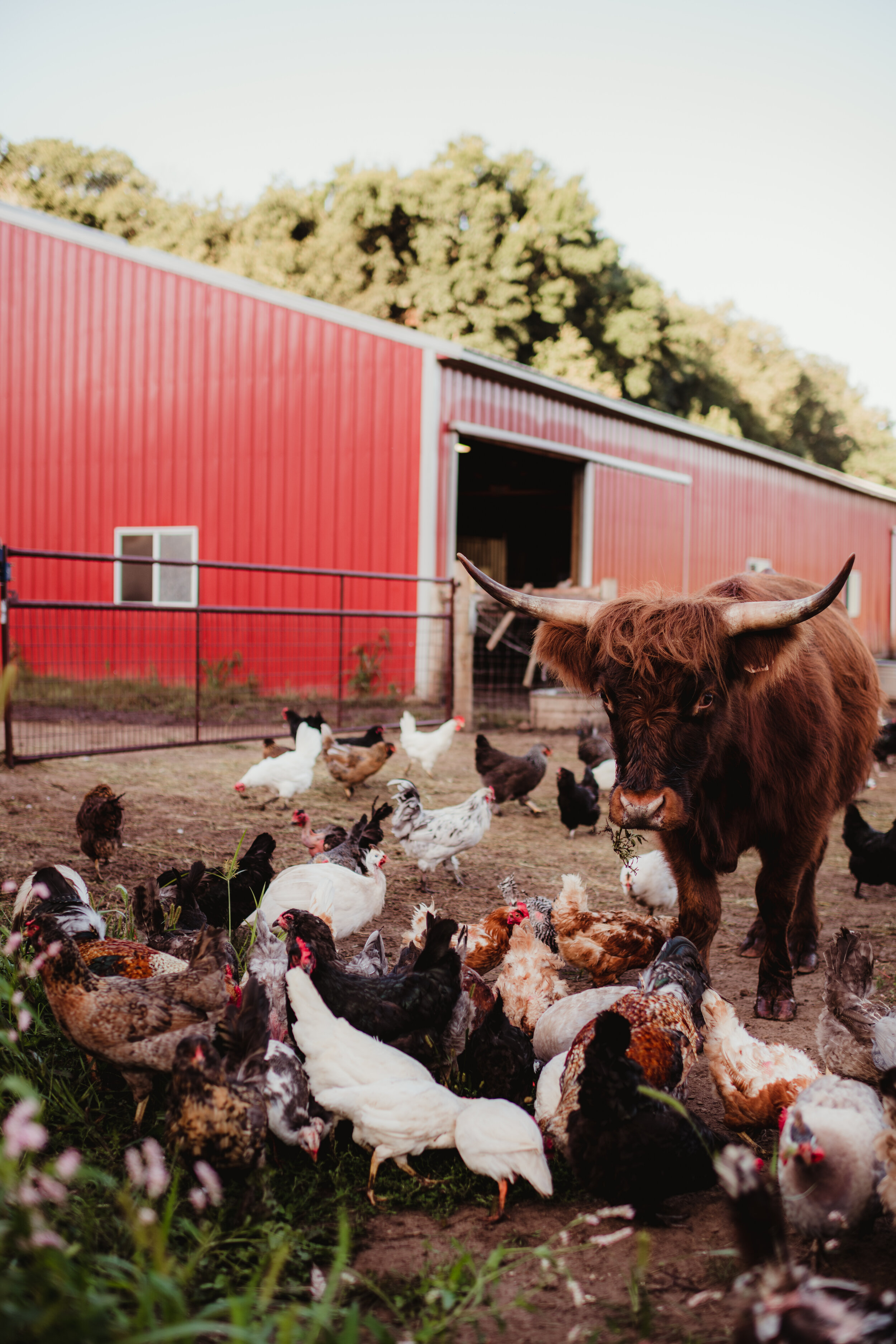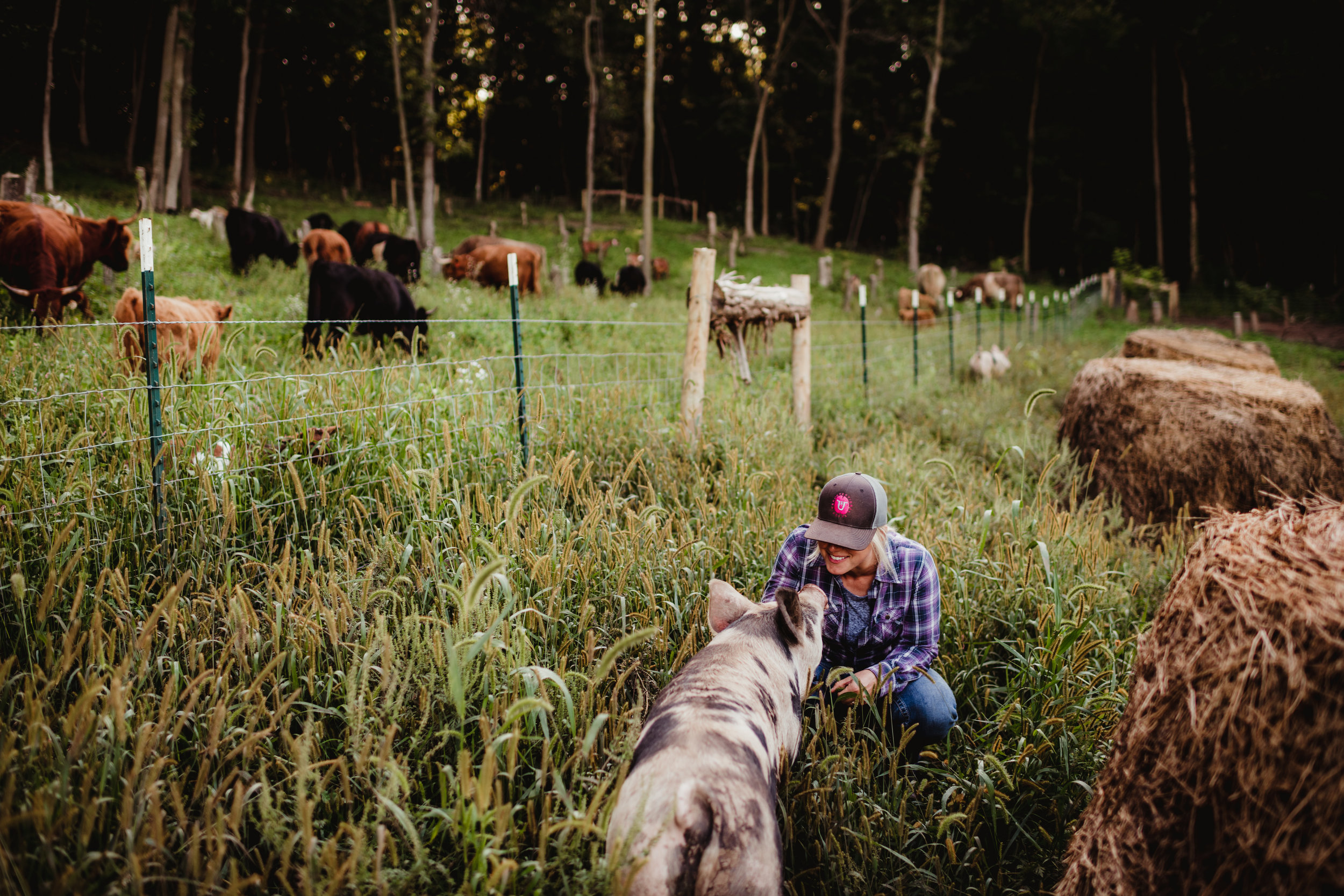Meet Your Farmers
We are Melissa and Ben, first generation farmers. Both born and raised in Southeastern Wisconsin, we met in Milwaukee, Wisconsin in 2004. At that time, we both shared an interest in cooking, health, and all things food. After traveling across the country for both school and work, we purchased a small 10 acre farm in Northern Colorado in 2014. Focusing on sustainable agriculture, we raised chickens, goats, pigs and a few cows. After outgrowing the farm, we returned home in 2016 to grow and expand Unconventional Acres in Arena, Wisconsin.
Unconventional Acres is a woman owned farm and small business! Day to day operations, marketing, and sales are managed and completed by Melissa 365 days a year. Major farm jobs and projects are tackled together as a husband-wife team when Ben returns home from his off farm job. With a continued passion in cooking, health, and all things food, we work hard and farm slow to bring you the best pastured meats direct from our farm to your table.
Unconventional Acres - Different For Good
Our name says it all! Unconventional Acres’ operating principle is to combine traditional pasture based farming with modern agricultural technology and science. Our belief is that slow and traditional farming creates the most rich and flavorful meat and eggs, while providing our livestock an opportunity to exhibit their natural behaviors in a stress free environment. Growing quality meat with flavor takes time, but modern agricultural advances have helped us to develop efficiency, connect the farm to our community and improve on traditional pasture farming.
our land
Unconventional Acres is located in the driftless area of Iowa County, Wisconsin. When purchased in 2016, the farm consisted of 30 acres of unmanaged pasture and 50 acres of overgrown woodland forest. The land had not been farmed in over 25 years. Using regenerative agriculture, we have slowly been restoring health to our land. After fencing, we started restoring the native grasses in our pastures with rotational grazing and selective mowing. In the forest, we cleared diseased trees and invasive brush. We are continuing our work in the woods, selectively cutting and clearing overcrowded trees to allow the remaining oak and hickory trees to flourish. These practices not only improve the health, longevity, and nut crop production of our trees, but it also opens up the canopy allowing light to reach the forest floor. Native pasture grasses can grow again adding additional grazing area for our livestock, erosion control for our soil, and rejuvenate the biodiversity of our woods.




